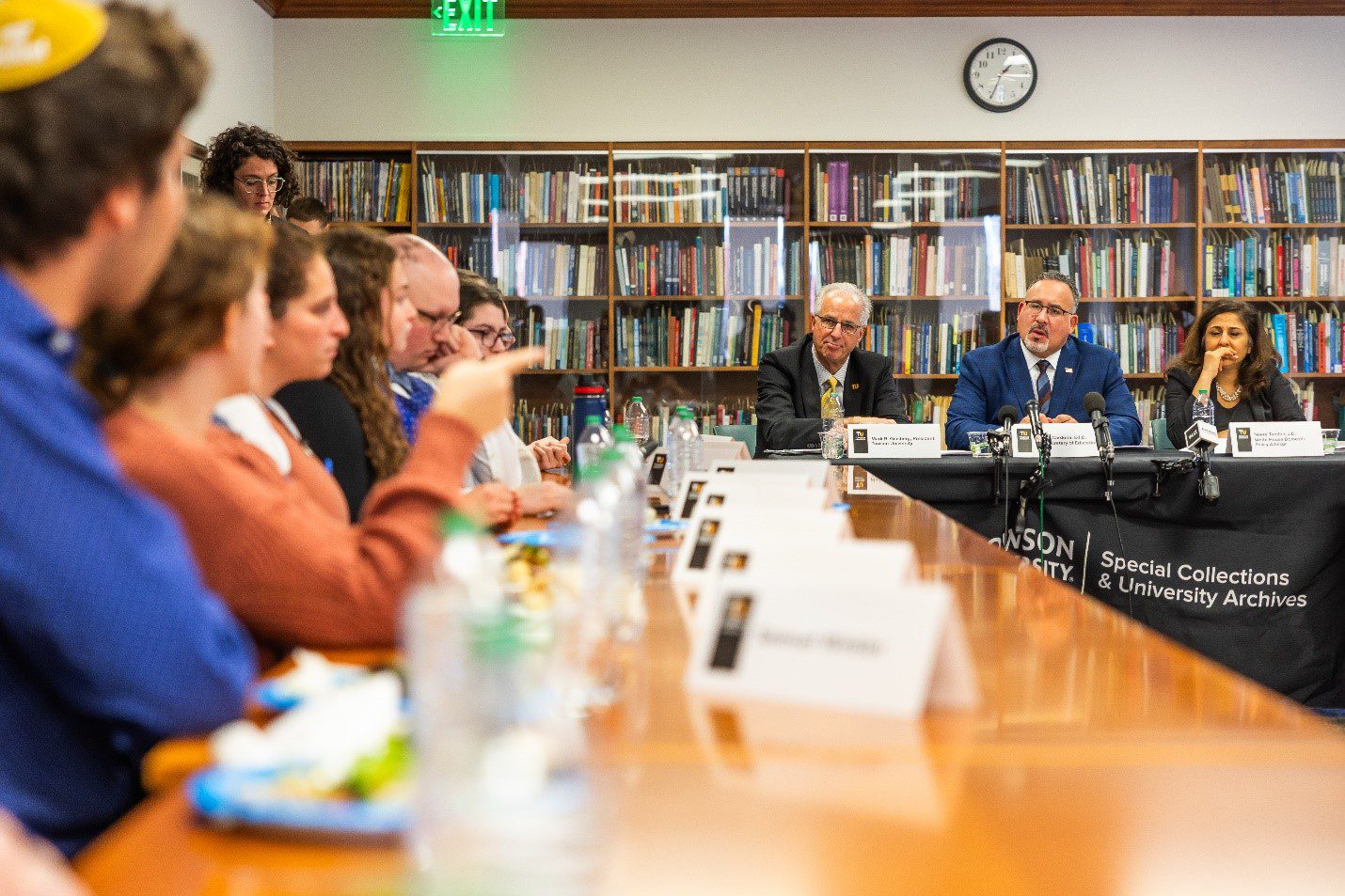By Melissa Garlick, Senior Director of Combating Antisemitism and Building Civic Engagement at Combined Jewish Philanthropies
With antisemitism rising, it can be easy to overlook the bright spots — the building blocks our work is laying for long-term, meaningful change. CJP’s Center for Combating Antisemitism (CCA) recently launched the first-ever local workplace antisemitism strategy, focused on bringing resources and tools to businesses and workplaces in Greater Boston to address antisemitism. This work kicked off recently through a roundtable discussion CJP hosted with human resources and diversity, equity, inclusion, and belonging (DEIB) executives across Greater Boston with April Powers, VP of Diversity, Equity, and Inclusion at Project Shema, on how to incorporate antisemitism education and training into DEIB initiatives.
“Many Jewish people hold intersectional identities (e.g. multi-ethnic, LGBTQIA+, disabled) which may be considered in DEI programs, only to find that their Jewish identity is not, which means antisemitism can go unchecked in our workplaces,” April says. “When we think about our staff having psychological safety and a sense of belonging, that should include Jewish people.”
Antisemitism is a bigger problem than any one person, one organization, or one sector of society. We need a whole-of-society approach to effectively address it. Our community has long valued the notion of building relationships and allyship with civic leaders, but after Oct. 7 it has become clearer that our allies lack the knowledge and tools to know how to be allies in the fight against antisemitism. These must include action to learn, educate, and create inclusive spaces that reflect Jewish experiences and address antisemitism head on.
“No robust DEI program is complete without incorporating Jewish identity and countering antisemitism appropriately in their work,” April says. “As a Black Jewish DEI practitioner, I myself did not do this well in the past. To do this, companies can start by offering trainings on antisemitism and Jewish identity; sponsoring Jewish cultural employee resource groups; ensuring DEI consultants appropriately include antisemitism in the ‘isms’ and biases they cover; and partnering with organizations like CJP to make sure that they are engaged in conversations around the issues that impact our community.”
Building and leveraging relationships with civic leaders — including business and nonprofit leaders — CJP’s CCA is proud to be a hub for this work and to partner with organizations like Project Shema to bring these trainings and tools to civic spaces so that our society can better understand and address antisemitism.
 Share your story
Share your story 



